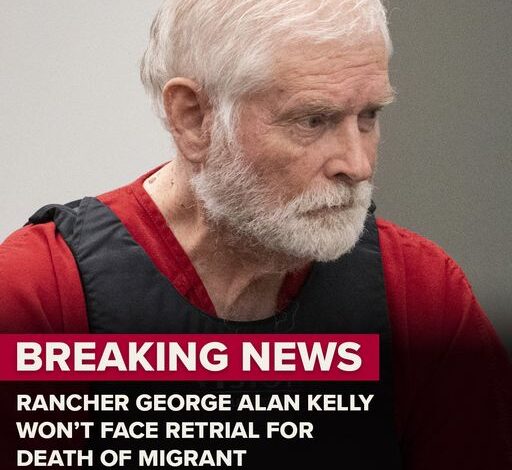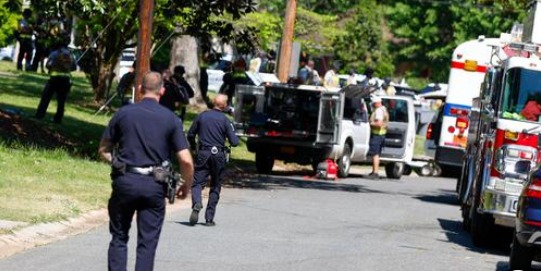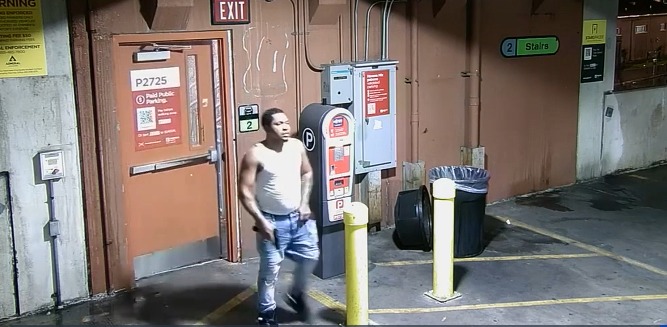
Arizona Rancher George Alan Kelly Won’t Face Retrial for Fatal Shooting of Mexican Migrant: Case Declared a Mistrial
The case of Arizona rancher George Alan Kelly, who faced charges in connection with the fatal shooting of Gabriel Cuen-Buitimea, an unarmed migrant, on his property near the U.S.-Mexico border, has captivated public attention and ignited debates about immigration, property rights, and self-defense.
The incident took place on January 30, 2023, when Kelly, 75 at the time, encountered Cuen-Buitimea and a group of men on his property in Nogales, Arizona. The encounter quickly escalated into tragedy, as Kelly allegedly fired an AK-47 rifle toward the group, resulting in Cuen-Buitimea’s death. The prosecutor, Mike Jette, argued that Kelly recklessly discharged his firearm, causing fatal injuries to Cuen-Buitimea, who suffered three broken ribs and a severed aorta.
Kelly’s defense, however, painted a different picture of the events. According to Kelly, he fired warning shots in the air to deter the group from trespassing on his property. He claimed that he feared for his safety, as well as that of his wife and property, and never intended to harm anyone. Kelly asserted that he aimed his shots over the heads of the group, maintaining that he did not shoot directly at anyone.
The case against Kelly unfolded in the courtroom, with testimonies from witnesses, experts, and law enforcement officers. Jurors heard conflicting narratives about the events leading up to the shooting and were tasked with weighing the evidence to determine Kelly’s guilt or innocence.
Throughout the trial, tensions ran high, reflecting broader divisions within society over issues of immigration and property rights. On one hand, supporters of Kelly argued that he had the right to defend his property against trespassers, especially amid concerns about illegal immigration along the border. They viewed Kelly as a victim of circumstances, forced to take drastic measures to protect his livelihood and loved ones.
On the other hand, critics of Kelly condemned his actions as excessive and unjustifiable. They argued that firing a weapon toward a group of unarmed individuals, regardless of their immigration status, constituted reckless behavior and disregard for human life. They called for accountability and justice for Cuen-Buitimea and his family, highlighting the tragic consequences of violence fueled by fear and prejudice.
As the trial progressed, the emotional toll on all parties involved became increasingly evident. For Kelly, the legal proceedings represented a fight for his freedom and reputation, as well as a test of his faith in the justice system. For Cuen-Buitimea’s loved ones, the trial was a painful reminder of their loss and the lingering questions surrounding his death.
Amidst the courtroom drama and legal wrangling, the broader implications of the case reverberated throughout the community and beyond. It raised fundamental questions about the rights and responsibilities of property owners, the use of force in self-defense, and the treatment of migrants seeking a better life in the United States.
Ultimately, after weeks of deliberation, the jury reached an impasse, unable to reach a unanimous verdict. With the trial ending in a mistrial, the case remains unresolved, leaving lingering doubts and unresolved grievances on both sides.
As the legal proceedings come to a temporary halt, the debate over George Alan Kelly’s actions and the circumstances of Gabriel Cuen-Buitimea’s death continues to rage on, serving as a sobering reminder of the complex and contentious issues that define the American experience.



